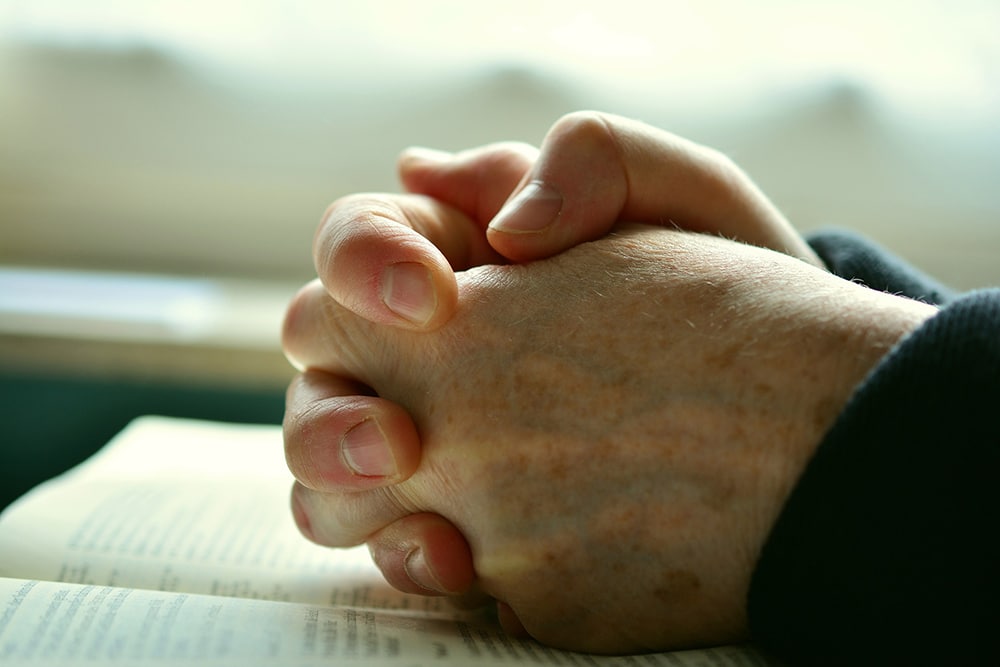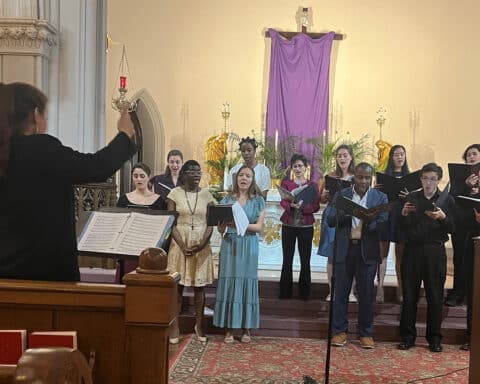
— Anthony Navarra, via email
Answer: We pray for ourselves and one another because God consistently teaches that we should (for example, 1 Thes 5:25; 2 Thes 3:1; Jas 3:1; 1 Tim 2:8; among other places). While it is true that God knows what we need, many things are contingent upon us asking. Further, though God knows the future, he also always has known that we would pray for this or that and already set forth answers for what he always has known we would ask. A creative song says in this regard, “God answers prayers faster than right now and sooner than immediately.”
As for why God, who knows what we need, wants us to ask, there are several likely answers. In the first place, God wants us to be involved in considering our needs and the needs of others. As such he engages our intellect and will, and we participate in his providence. He also wants to engage us in the dialogue of prayer.
Further, in wanting us to ask, it is clear that he wants to engage our freedom. For indeed, there are many things he knows we need, but sometimes we are either unable or unwilling to see that in the present moment. For example, God may know that I need more humility, but I am unable or unwilling to accept that grace just now. Jesus once said, “I have much more to tell you, but you cannot bear it now” (Jn 16:12). Thus God waits, in many cases, until we are ready and until we ask.
As for Jesus, he intercedes on our behalf with the Father. Scripture says, “Therefore, [Christ] is always able to save those who approach God through him, since he lives forever to make intercession for them” (Heb 7:25). His essential intercession for us is that saving graces reach us, but we need not suppose he does not also ask lesser things on our behalf. He prays, both as our brother but also as Lord. In the Trinity, God the Father speaks to us perfectly through his Son. But then it also follows that the Son speaks of us perfectly to the Father. He is the Word through whom that Father is mediated to us, and we to the Father.
Kissing the altar
Question: Why does the priest kiss the altar? It struck a non-Catholic friend of mine as strange when he attended Mass, but I couldn’t answer.
— John Madison, Clearwater, Florida
Answer: The altar, which should be made of stone or at least have an altar stone, symbolizes Christ. Therefore, when the priest enters the sanctuary, he greets Christ with a holy kiss.
In modern Western culture, men usually greet each other with a handshake. But in the ancient world, a (non-romantic) kiss on one or both cheeks was common. This is still the case in many places in the world today. Upon leaving the sanctuary, the priest also bids farewell to Christ by kissing the altar once again.
Also, commonly present in the altar stone are relics of one or more saints. Thus, in a secondary sense, the priest salutes the saints there, and, by extension, all the saints. For the liturgy is never celebrated in isolation. Rather, many saints gather with us as well as the myriad of angels.
In both cases, the kissing of the altar is a greeting and a farewell.





